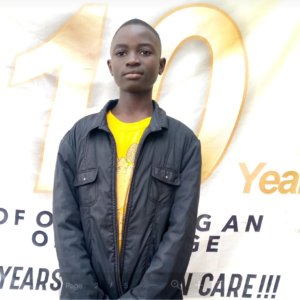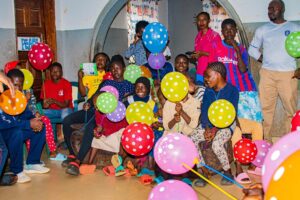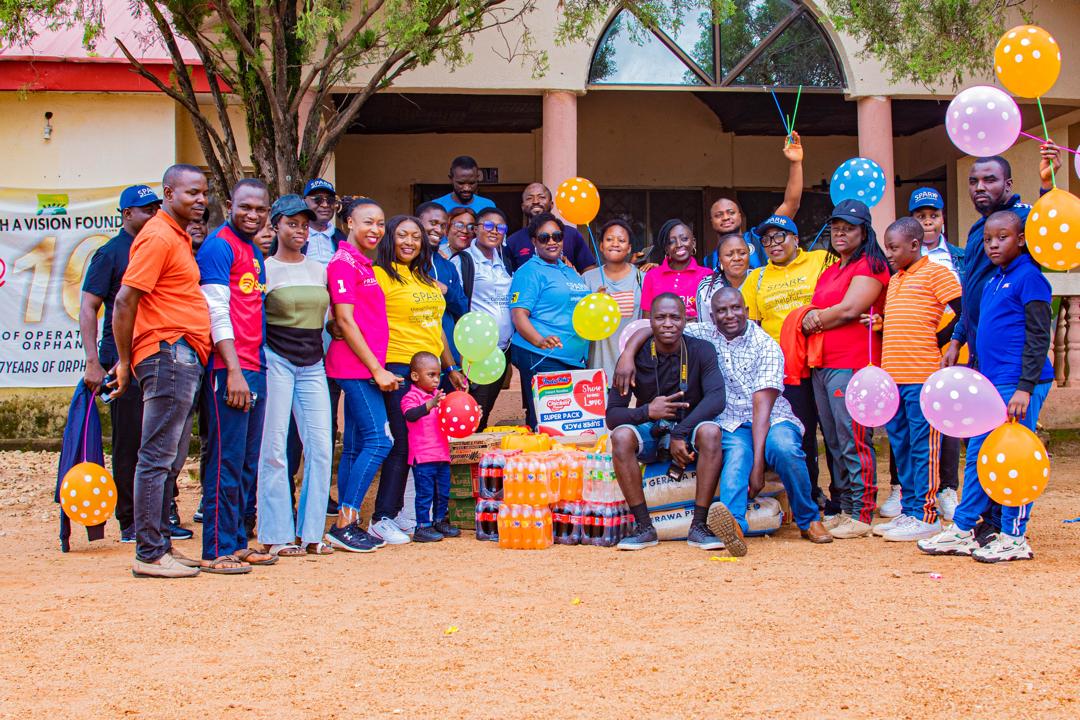Continuing conflicts in Plateau State, north central Nigeria, have led to a growing number of orphans, forced to fend for themselves. Yet a rescue home is offering new beginnings for the displaced.
Emmanuel Luka’s mother was one of several murdered in cold blood in December 2016 during a journey back to her hometown in the north of Plateau State. Only seven at the time, Luka still vividly recalls the tragedy.
“She had gone to church with other women at that time for a women’s fellowship programme,” Luka, now 14, said in a voice tinged with sadness. “The Fulanis attacked them on the road in Riyom, and I never saw my mother again.”
His life spiralled into despair following his mother’s sudden demise, as he struggled to fend for himself. “Sometimes for a whole day, all I got was just a meal. I was out on the streets looking for work that I could do,” he said. With no reliable support from relatives, he soon dropped out of school.
Like Luka, Emmanuel Sunday lost his father to a stray bullet during an ethno-religious crisis in Bassa, another community that lies 19 kilometres from Jos. Lacking basic communication skills, Sunday’s world crumbled like a house of cards in the aftermath. ”I could not read and write. I didn’t even know how to speak English,” the 12-year-old recounted.
Today, Sunday and Luka are among several other vulnerable children being nurtured at a rescue home in Jos. Most of the children here share similar harrowing tales of loss and displacement, while others come from impoverished backgrounds.

A Glimmer of Hope
The boys’ new lease of life is thanks to the Kids with a Vision Foundation (K-WAVF), which provides care and shelter for the displaced and the vulnerable. Through a network of female leaders, known as community representatives, it has extended its reach across five local government areas in Plateau State.
K-WAVF’s team of staff collaborates with community representatives in various communities to assess the circumstances of vulnerable children. This process—known as gatekeeping—helps the organisation focus its resources on those in dire need of support, explained Alpha Adamu, the organisation’s Education and Health officer.
But the foundation does not cater exclusively to orphans. Goodness Audu, for example, found refuge in K-WAVF after losing her husband in a community crisis. Struggling to care for her toddler and 5-week-old baby, Goodness was introduced to K-WAVF’s community representatives by a neighbour. Today, she works as a caregiver at the orphanage.
“My stay at K-WAVF has been full of beautiful memories, and I have also grown from slim to chubby,” said a delighted Goodness, reflecting on her experience.
More than just a Shelter
K-WAVF was founded in 2013 by Grace Solomon, who lost her parents in childhood. For Grace, the death of her mother particularly plunged her into a desperate struggle for survival, an experience that would spur her passion to help displaced children. After completing a stint of theological training in 2005, Grace’s passion hardened into a conviction.
In 2007, using some of the inheritance her late mother left behind, she hosted support programmes for orphans, particularly in Bauchi State. By the fall of 2013, with a growing number of children then under her wings, she established a home, which came to be known as Kids with a Vision Foundation (K-WAVF).
The foundation partners with local schools and hospitals to provide a high standard of living for its beneficiaries.
“Our children go on field trips, learning visits, and do many other activities that boost their self-esteem,” Grace said. “Our track record of holistic accountability has left K-WAVF soaring on the pedestal of excellence.”
In addition, the foundation provides training in “vocational skills like hairdressing, shoemaking, and the like that will provide proper balance for them through life.” added Adamu, the Education officer.

A Ripple Effect
K-WAVF’s support comes in the face of decades of escalating tensions between Christians and Muslims in Plateau that left hundreds of residents dead and thousands displaced beginning in 2001.
On the eve of Christmas in 2023, as many as 300 residents, including children, were killed in a vicious crisis between farmers and herders in the state.
Among the huge ripple effects of these bloody conflicts has been the rise in the number of orphans and vulnerable children (OVCs), many of whom are forced to abandon their lofty aspirations while shifting for themselves.
UNICEF notes that over 13 million children of primary and secondary school age are out of school in Northern Nigeria alone, a staggering figure that represents around 60% of the country’s total out-of-school kids. Of all the factors, conflict is a key contributor.
Navigating challenges
K-WAVF’s commitment to restore hope to displaced children skates over a myriad of challenges, from limited funding to a shortfall in workforce. High rents have forced the foundation to relocate several times, a challenge Grace acknowledged as the most pressing.
“For the past 11 years we have stayed in four different homes, and they were all rented. We are hoping that the 5th home will be our final abode,” she said, adding that the foundation had recently acquired land for a permanent residence.
Rising inflation is another trouble, which continues to take a toll on the foundation’s finances. After monthly budgeting and planning, Grace and her workers meet with higher prices in the market, much to their chagrin.
Donations from churches and hospitals in Plateau State sometimes help to relieve the strain. “So when things become so difficult, I go all out. I reach out to churches, families and partners who can provide support.” Grace said.
The challenges notwithstanding, K-WAVF continues to offer a lifeline to Luka and children displaced by Plateau’s ethno-religious conflicts, offering them healing and a chance to dream again. ”This is home now, and I enjoy the love and support of my new family,” Luka said, beaming with pride.
This story was produced with the support of Nigeria Health Watch through the Solutions Journalism Network, a nonprofit organisation dedicated to rigorous and compelling reporting about responses to social problems.
Continuing conflicts in Plateau State, Nigeria, have left many children orphaned and displaced. Emmanuel Luka and Emmanuel Sunday, children who lost their parents in separate conflicts, now find solace at the Kids with a Vision Foundation (K-WAVF) in Jos. This organization, founded in 2013 by Grace Solomon, provides care, shelter, and vocational training to vulnerable children and widows through local community representatives. Despite challenges such as limited funding and high rents, the foundation continues to offer hope and stability.
K-WAVF addresses the impacts of ongoing Christian-Muslim tensions in Plateau State, which have resulted in numerous deaths and thousands of displaced persons. The organization partners with schools and hospitals to ensure a high standard of living for its beneficiaries and offers vocational skills training. Despite struggles with inflation and relocating due to rising rents, K-WAVF received support from local churches and hospitals to maintain its mission. This foundation's efforts provide a sense of home and renewal for children affected by conflicts, enabling them to nurture dreams and rebuild futures.






